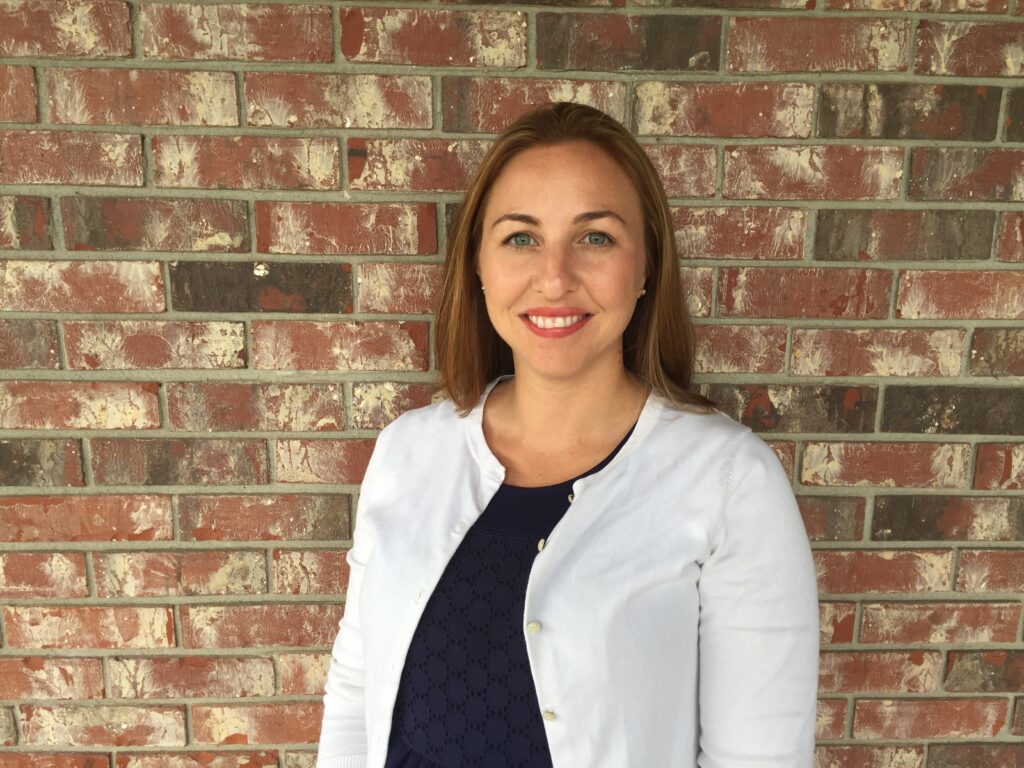
“In finances, balance is the goal, not either extreme.
So there’s probably strengths to both of your perspectives.”
— Megan McCoy
How can parents with different money personalities raise money-smart kids?
My latest podcast guest, Megan McCoy, offers strategies for partners to address their differences and realign their intentions on a money-smart journey. We also dive into negative financial self-fulfilling prophecies, why financial opposites attract, avoiding financial fights, the power of delayed gratification and the problem with financial education in the classroom.
Megan holds a Ph.D. in Human Development and Family Science with an emphasis on Marriage and Family Therapy from The University of Georgia. She is currently an Assistant Professor at Kansas State University’s personal financial planning program, where she teaches courses at all levels focused on financial well-being, financial therapy and couple dynamics regarding financial therapy. What’s more, Megan is a licensed Marriage and Family Therapist, an Accredited Financial Counselor® and a Certified Financial Therapist-I™.
Megan’s research interests focus on financial therapy, financial well-being and financial communication. She has published over forty articles in top-tier mental health, family science, financial counseling and financial planning journals. Megan has also been featured as a financial well-being expert for The Today Show, The New York Times, NPR, BBC, The Wall Street Journal and many other media outlets.
Links (From the Show)
- Connecting with Megan
- Megan on LinkedIn
- Megan’s book, Financial Planning Counseling Skills, which she co-authored with Jaime Lynn Byram, Michelle Kruger and John Grable
- Money-Smart Mentions
- Richard Thaler and Cass Sunstein’s Nudge: Improving Decisions About Health, Wealth, and Happiness
- B.J. Fogg’s Tiny Habits: The Small Changes That Change Everything
- James Clear’s Atomic Habits: An Easy & Proven Way to Build Good Habits & Break Bad Ones
- Po Bronson and Ashley Merryman’s NurtureShock: New Thinking About Children
- Heidi Grant Halvorson’s Succeed: How We Can Reach Our Goals
- Carol Dweck’s Mindset: The New Psychology of Success
- The work of John Gottman, who ran a “love lab” studying couples for years
Show Notes (Find what’s most interesting to you!)
- How free admission to a financial therapy conference led to Megan’s current research [2:51]
- What influenced Megan’s interest in therapy [3:50]
- Megan defines the term “financial well-being” [4:27]
- What is a financial therapist? (Fun fact: Megan was the first Certified Financial Therapist-I™!) [4:59]
- The dangers of negative financial self-fulfilling prophecies [6:57]
- How to take baby steps toward positive financial behaviors [8:11]
- How can parents begin to get on the same page when it comes to raising money-smart kids? [9:58]
- Financial opposites attract. Why is that a big deal? Also, how can parents address their differences? [11:24]
- Other areas in which opposites attract [13:27]
- Financial therapy as an oil change [14:19]
- How Megan suggests attempting to realign two partners with different money personalities [15:59]
- How to initiate a conversation with your partner to try to get on the same page (Hint: Megan’s favorite life hack calls for using a pen and paper.) [18:07]
- Avoiding what Megan calls “pre-fights” can help you avoid actual fights. Assume the best intentions when you can. [21:22]
- Megan shares a different (and interesting) allowance method for raising her own kids to be money-smart. [25:36]
- Megan relates a funny story about misunderstanding her daughter’s question about money. [27:13]
- A deep dive into Megan’s interest rate allowance method [28:35]
- The power of delayed gratification can manifest quickly. Megan shares a fascinating study on this topic. [30:19]
- Thoughts on cash-based allowance programs [31:09]
- Megan’s family’s core values are reflected in her allowance program. [32:38]
- Another approach to charitable giving [34:18]
- The concept of nudges [37:16]
- “Each system is going to have its strengths and weaknesses.” [38:16]
- Megan and I discuss the problem with financial education in the classroom. [39:01]
- Megan’s Golden Rule [46:15]
- Being money-empowered as not being afraid [47:05]
- The importance of reading [47:17]
- How to address anxiety with your kids [47:44]
- “Be kind to yourself.” [48:56]
- Megan’s money-smart book recommendation [49:33]
- Megan on the web [50:43]
- Megan’s book plug [51:04]
If you liked this episode …
Looking for more advice on how parents can align themselves financially? Author, CPA and occasional Art of Allowance Podcast co-host Robin Taub suggests a values-based exercise during her second episode. Stream this segment beginning at 43:29.
Intrigued by the relationship between an allowance program and family values? Financial psychologist Brad Klontz outlines how he and his wife are using their allowance system to help teach their family’s values, including the importance of saving, giving and, of course, spending. Be sure to tune in at 8:39 for all the details.
Interested in bridging the gap between financial education in school and at home? During her appearance on The Art of Allowance Podcast, educator and Pockets Change co-founder Andrea Ferrero discusses how she involves parents in financial learning. Listen in at 23:43 for her strategies.
Please Subscribe
If you like this podcast, then please give us a review and subscribe to the show. The Art of Allowance Podcast is available on iTunes, Spotify, Stitcher, Radio Public and now Amazon Music. Subscribing is free, and it will help me produce more enriching content for you to enjoy. Thanks!
You might also want to check out The Art of Allowance Project, our reimagined program to get your children excited about money smarts at any age. Until next time, I wish you and your family well as you journey forth.
Thanks for listening!
John

